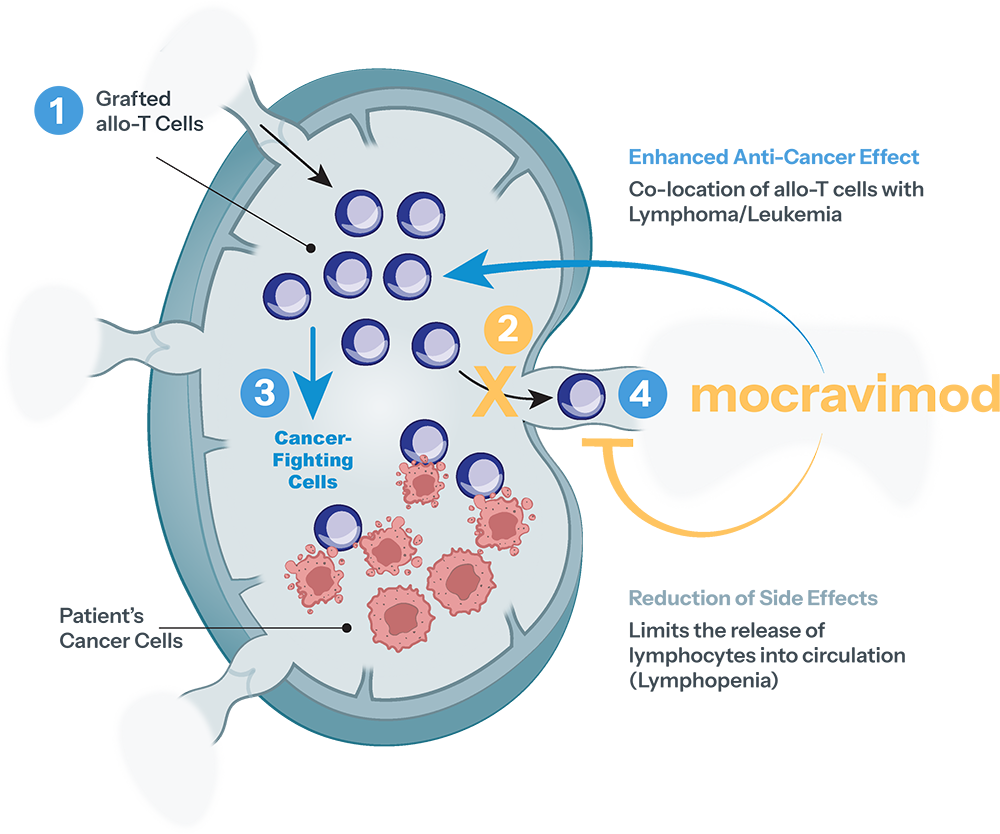Science
Priothera is developing mocravimod, an S1P receptor modulator, with the aim of enhancing the curative potential of allo-HCT.
Christoph Bucher’s statement on stem cell transplantation in patients with AML, and the ideal drug profile required for this procedure.

Mocravimod
Promising early clinical results have revealed that mocravimod has the potential to decouple graft-versus-host disease (GvHD) from graft-versus-leukemia (GvL), by preventing GvHD while preserving GvL.
Mocravimod´s dual mechanism of action
Mocravimod blocks lymphocyte egress from lymphoid organs and bone marrow. This results in co-location of effector lymphocytes with leukemia cells, augmenting the graft-versus-leukaemia effect, and the simultaneous reduction of circulating lymphocytes that can mediate graft-versus-host disease.
Step 1
Transfused donor lymphocytes migrate through the lymphoid organs.
Step 2 – Mocravimod
In the presence of mocravimod donor lymphocytes (grafted allo-T cells) are prevented from leaving lymphoid organs.
Step 3
Allo-T cells accumulate in the lymphoid organs and co-locate with and kill resident lymphomas/leukemias that escape chemotherapy. This improves beneficial graft-versus-leukemia/lymphoma and therefore prevents disease relapse.
Step 4
Because fewer allo-T cells can migrate into the circulation, fewer donor allo-T cells can attack patient’s healthy tissue (graft-versus-host disease (GvHD)). This results in the significant reduction of aggressive acute GvHD which is also associated with strong inflammatory responses (Cytokine Release Syndrome).
Lymph Nodes & Bone Marrow

The sequestration of alloreactive donor T cells
has two highly beneficial effects:
- Graft-versus-host disease (GvHD) is reduced as the alloreactive donor T cells do not migrate to peripheral tissues.
- The retained alloreactive donor T cells in the lymphoid organs, specifically the bone marrow, eliminate residual malignant leukemic cells that escape conditioning or chemotherapy.

Alloreactive Donor T Cell

Leukemia Cell

Dead Leukemia Cell

Peripheral Tissue

Dead Peripheral Tissue
 No Treatment
No Treatment
 Standard of Care
Standard of Care
Immunosuppressive drugs reduce both detrimental GvHD but also beneficial GvL. Reducing GvL increases relapse risk.
 Mocravimod
Mocravimod
Non-immunosuppressive
